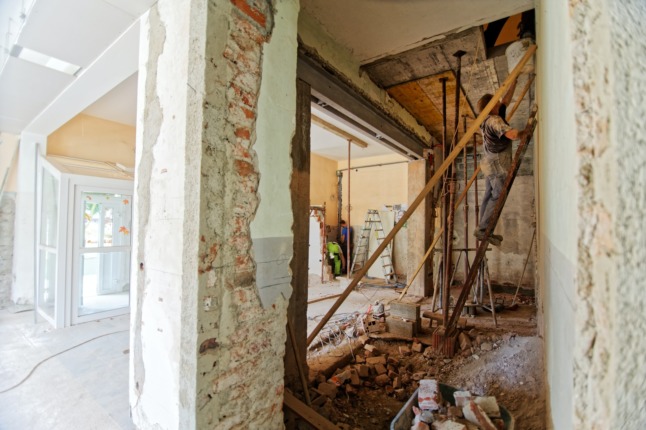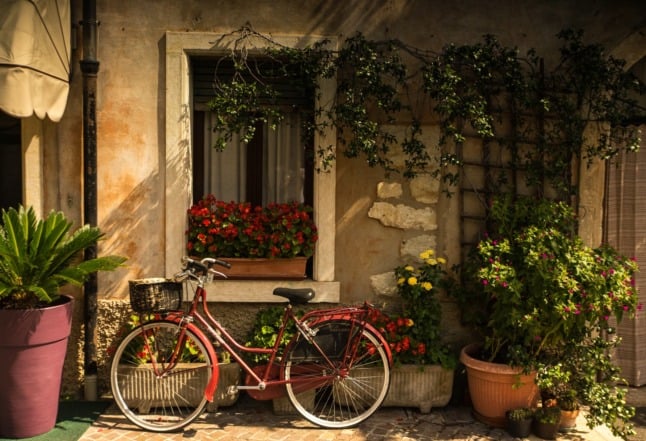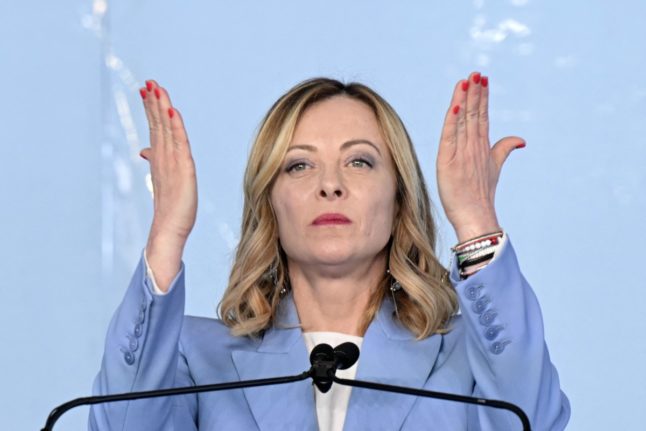The Italian government is making final amendments this week to its budget plan for 2022, laying out next year’s tax and pensions reforms as well as some extensions to tax breaks for home renovations.
“This is an expansive law, which accompanies the recovery and is fully consistent with the other documents that guide the economic action of this government,” stated Prime Minister Mario Draghi at a press conference on October 28th.
“It acts both on demand but also very much on supply: we cut taxes, we stimulate investments,” he added.
Budget 2022: Which of Italy’s building bonuses have been extended?
With the new budget plan in place, the prime minister said Italy’s economy next year “will grow well over 6 percent”.
Here’s a look at the measures most likely to affect you.
Income tax
Italy plans to set aside a total of 12 million euros to fund cuts to income tax in its 2022 budget, not the 8 billion that was previously cited.
“8 billion euros will go to a targeted intervention to reduce taxes on companies, on individuals, on the tax wedge and there are various hypotheses for the use of these 8 billion that we will define with parliament,” stated Draghi.
The so-called tax wedge is the difference between the salary an employer pays and what a worker takes home, which is particularly high in Italy. So the move to reduce it is intended to benefit employees.
The Organisation for Economic Cooperation and Development (OECD) said earlier this year that the tax wedge in Italy was the fifth-highest in a group of 37 advanced nations, estimated at 46% in 2020.
The fiscal burden on employees is a chronic shortcoming of the Italian labour market, economists say, weakening the competitiveness of the country’s production system.
READ ALSO: How new freelancers in Italy can slash their tax bills to as little as 5%

Photo: Scott Graham/Unsplash
“We are earmarking 40 billion euros over a three-year period for reducing taxes, of which 24 billion for the tax wedge and the remainder for tax incentives, for families and businesses for real estate and digitalisation,” confirmed Draghi.
This is only “the start of the process of reform of the Italian tax system”, added the Minister of the Economy, Daniele Franco.
Household energy bills
A further 2 billion euros will be provided to “contain the effects of price increases in the electricity and natural gas sectors in the first quarter of 2022”, stated Draghi.
This is double the figure speculated in recent weeks.
A the beginning of October, the government stepped in with emergency funding of three billion euros to limit a price surge as power prices shot up across Europe.
Pensions
“The objective is a full return to the contribution-based system,” stated Draghi on the topic of pensions.
A transition to Quota 102 is scheduled, which entails 38 years of contributions and reaching 64 years of age before drawing a pension.
It will replace an expensive early retirement scheme due to expire this year – the so-called “quota 100”, which allows people to retire if they have made 38 years of contributions and are at least 62 years old.
The government is also considering “widening the range of people” who can access pensions. “The government is open to discussion with the social partners because the objective is a full return to the contributory system,” Draghi reiterated.
This expanded range of people include women and those in certain types of tough manual jobs who benefit from early pensions, the so-called ‘APE sociale (Anticipo Pensionistico)‘.
It was originally an experimental measure introduced in May 2017 and was extended until December 31st 2021.
Firming up plans for pensions and recovering those who left the economy to work illegally are among Italy’s targets: representatives of the OECD told the Senate budget committee this month that Italy spends too much public money on pensions.

Building superbonus
Italy’s government launched the ‘superbonus 110‘ in May 2020, one of a raft of measures aimed at boosting the Covid-hit economy. Offering homeowners large tax deductions on expenses related to energy upgrades and reducing seismic risk, the scheme has unsurprisingly been popular – so popular in fact that high demand has led to delays on many projects.
Many construction incentives have been confirmed for next year, as “they have played a very positive role in stimulating the recovery of construction,” claimed Draghi.
READ ALSO: Italy’s ‘superbonus’ renovations delayed amid builder shortages and bureaucracy
The ‘superbonus’ has been extended for condominiums until 2023, but for many homeowners hoping to claim it for their single family homes, there isn’t as much time to move through the construction project as hoped.
The bonus has been granted an extension for the whole of 2022 for single family units, but with a serious caveat: you’re only eligible if it’s your first home and you have an ISEE (the social-economic indicator of household wealth) of 25,000 euros maximum.
If you don’t fall into this category, the deadline of June 30th 2022 remains.
For condominiums benefitting from 110% until 2023, the bonus will then drop in stages – to 70% for 2024 and 65% for 2025.
Other building bonuses
More of Italy’s numerous tax ‘bonuses’ have also been extended, such as the 60% ‘ecobonus’ and the facade bonus, which has been rolled on, but with a lot less of a tax break. It will drop from 90% to 60%.
Also confirmed in the Budget is the 50% deduction on purchases of furniture and large household appliances such as ovens (not lower than class A), washing machines, washer-dryers and dishwashers not lower than class E and refrigerators and freezers not lower than class F. This is valid for 2022, 2023 and 2024 inclusive.
See more details of the bonuses which have been extended here.
Rent discounts for young people
Young people, classed as between 20 and 31 for this measure, could benefit from a 20% discount on rent up to 2,400 euros. It is intended for those who leave home and have their own income up to 15,493.71 euros.
The discount applies whether you rent an entire flat or a room.

Equal pay and aid for working mums
52 million euros are budgeted for creating equal salaries to close the gender pay gap. This fund is scheduled to increase from its current 2 million euros per year.
A strategic plan will be implemented to combat gender stereotypes and close the gaps in employment, pay and pensions.
Further to this, the authorities will grant a 50% exemption from social security contributions for working mothers employed in the private sector, starting from the return to work after maternity leave. This is currently planned on an experimental basis for 2022.
READ ALSO: Italy’s ‘baby bonuses’: What payments are available and how do you claim?
Paternity leave
Ten days of paternity leave will be granted from 2022, which is to be taken within five months after the birth of the child.
The allowance was previously raised from seven to ten days for 2021 only, but now the measure is to be made permanent.
Plastic and sugar taxes
Italy’s planned plastic tax has been postponed until 2023. Created in 2020 and intended to promote a reduction in the production and consumption of single-use plastics, the measure has faced a series of delays with the government citing economic factors connected to the pandemic.
The tax would mean those who produce or buy plastic from other European countries or import single-use plastic items, known as ‘Macsi‘, faced a tax of 45 cents per kilogram of plastic product.
It was planned to come into force on July 1st this year, following a previous postponement from January of this year and July 2020 before that.
READ ALSO: How Italy’s foreign residents are fighting the growing problem with beach pollution
Industrial transition to green energy
150 million euros per year will be granted for the Climate Fund from 2022 to support industrial transition. This is to be further bolstered by an Italian Climate Fund, allocating a further €840 million a year from 2022 to 2026.
It is intended for investments in energy efficiency, the reuse of raw and recycled materials and for CO2 storage.



 Please whitelist us to continue reading.
Please whitelist us to continue reading.
Member comments